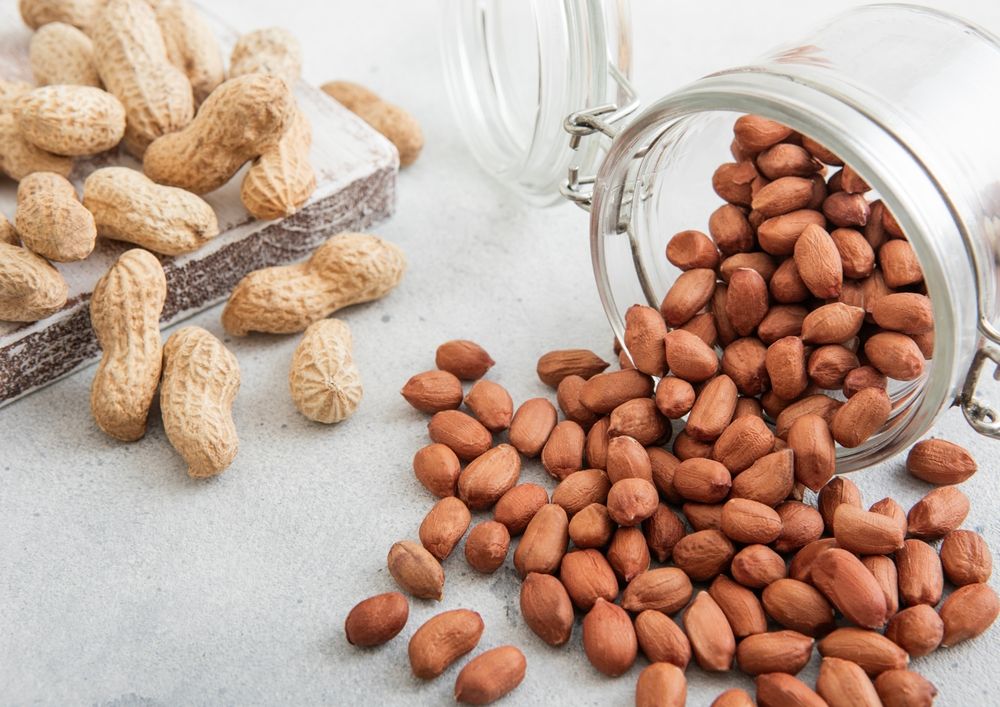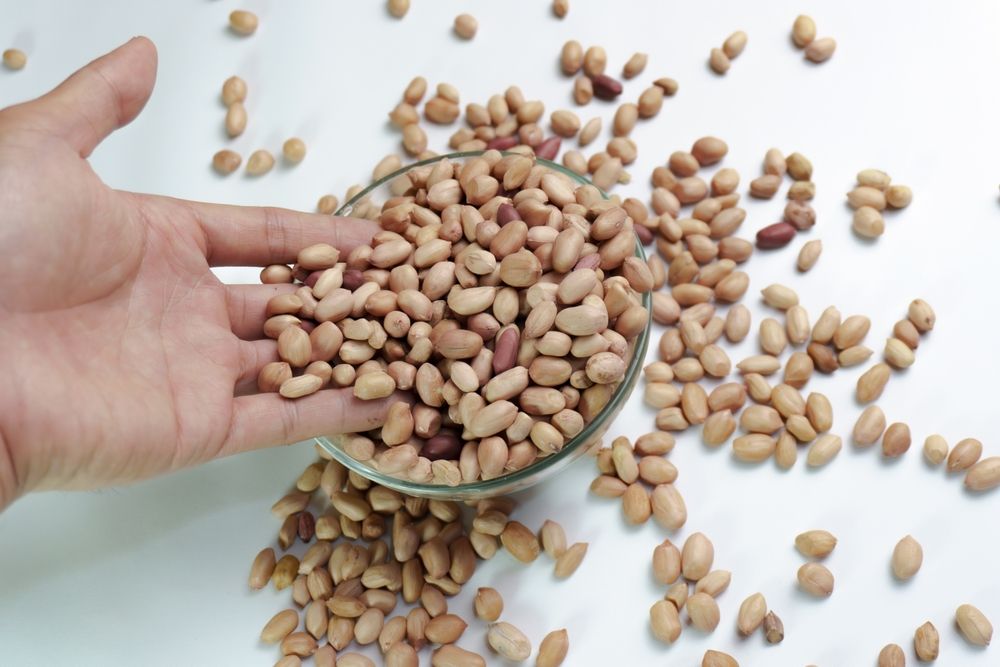
Americans have a deep love for peanuts. In fact, an impressive 5.9 billion pounds were produced in the U.S. last year alone, according to Statista. Whether enjoyed roasted or salted as a snack, spread on toast, or added to dishes for extra flavor, peanuts are a favorite versatile food. But the question remains: are peanuts actually good for you?
Beyond their great taste, peanuts offer substantial nutritional benefits. They are rich in protein, healthy fats, and a variety of vitamins and minerals that can promote heart health, aid muscle recovery, and more. However, like any food, peanuts come with both advantages and potential downsides, which should be considered before increasing your intake of these popular legumes.
To help you decide if peanuts are right for your diet, we consulted registered dietitians to break down the pros and cons of incorporating peanuts into your meals. Here’s what they had to say, so you can make an informed decision for your health. Read on to learn more, and if you enjoy peanuts in spread form, be sure to check out the 22 Healthiest Peanut Butters, According to Dietitians.
Peanuts Nutrition Facts
Per 1-ounce serving (28 grams):
- Calories: 161
- Fat: 14 g (Saturated fat: 2 g)
- Sodium: 5 mg
- Magnesium: 48 mg
- Carbs: 4.5 g (Fiber: 2 g, Sugar: 1 g)
- Protein: 7 g
Benefits of Peanuts
They’re an excellent source of plant-based protein.
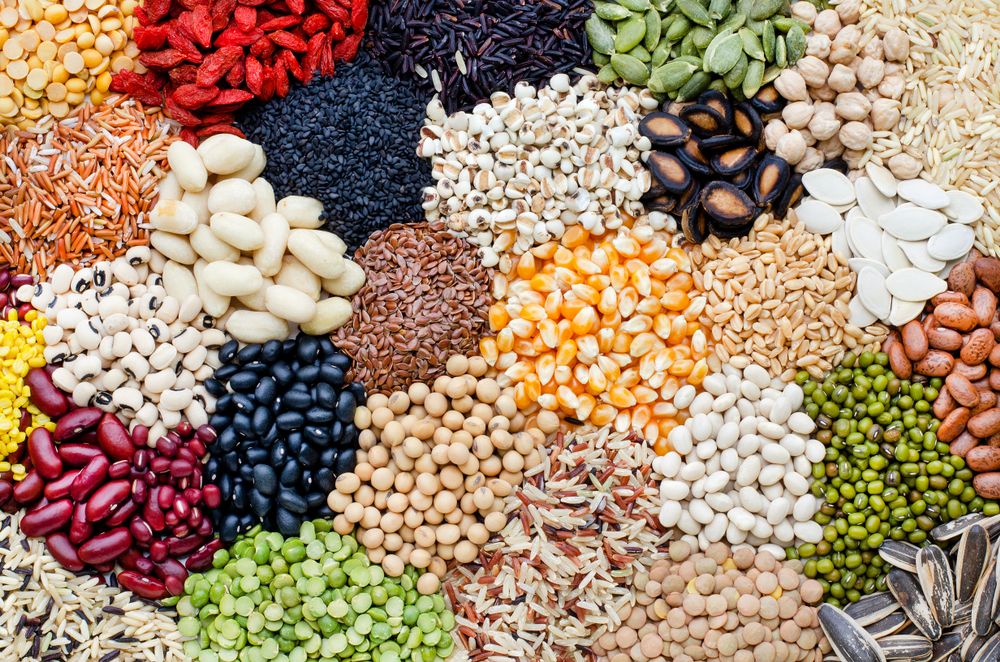
Destini Moody, RDN, CSSD, LD, a registered dietitian and sports nutrition expert with Garage Gym Reviews, explains, "Peanuts contain about 25 grams of protein per 100 grams, making them roughly 25% protein by weight."
This high protein content makes peanuts an excellent choice for those looking to boost their protein intake, particularly vegetarians and vegans. Additionally, the amino acids found in peanuts, especially leucine, play a key role in muscle repair and growth, making them a great option for those maintaining a healthy, active lifestyle.
They can boost heart health.

Research indicates that incorporating nuts like peanuts into a balanced diet is an excellent way to protect your heart while enjoying a nutrient-dense snack. "Peanuts are rich in monounsaturated and polyunsaturated fats, which are beneficial for heart health," explains Gianna Masi, CPT, RDN, a certified personal trainer and registered dietitian with Barbend.
"These healthy fats help lower low-density lipoprotein (LDL) cholesterol, often called 'bad' cholesterol, while increasing high-density lipoprotein (HDL) cholesterol, or 'good' cholesterol. This balance reduces the risk of coronary heart disease and stroke," she adds.
They're rich in magnesium.
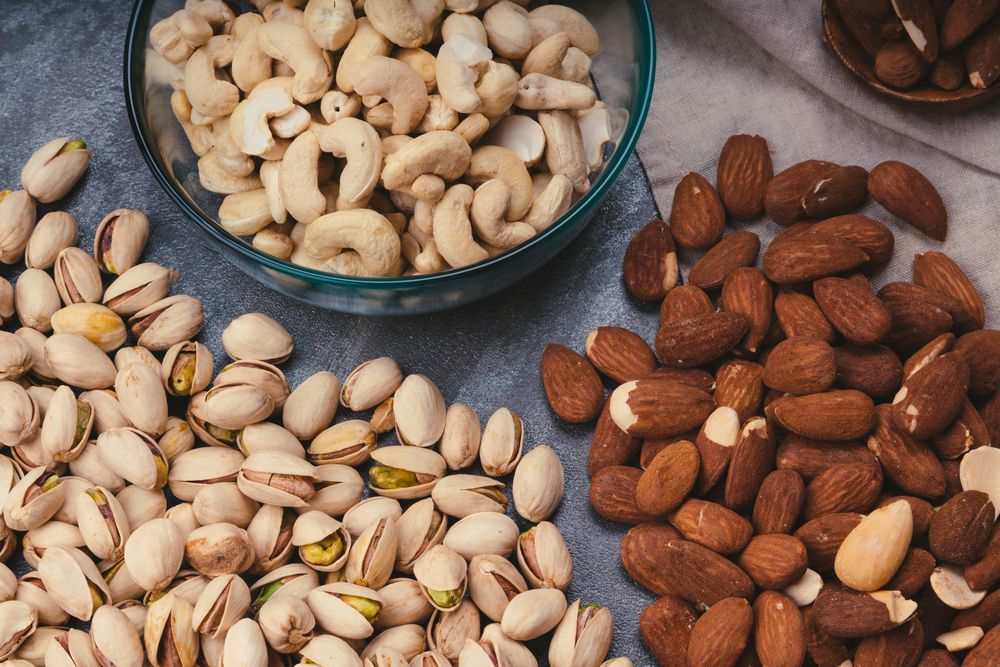
Many people fall short on magnesium intake, but peanuts can help provide a significant boost of this essential nutrient. "One cup of peanuts offers about 30 percent of your daily magnesium needs," says Moody. According to the National Institutes of Health, magnesium plays a key role in supporting bone health, cardiovascular function, and maintaining a healthy nervous system.
They support healthy weight management.

Peanuts, with their nutrient-dense profile, can be helpful for weight management. "Peanuts are high in protein and fiber, which promotes a feeling of fullness, helping to control appetite and reduce overall calorie intake," says Masi. "The fats in peanuts are also digested slowly, extending satiety. This can aid in weight management and help prevent overeating."
They help combat inflammation.

Inflammation is associated with numerous chronic diseases, and research shows that peanuts contain compounds that help address this issue. "Peanuts are rich in antioxidants like p-coumaric acid and resveratrol, which help combat oxidative stress in the body," explains Moody.
They can improve digestive health.

Peanuts are a great source of fiber, an essential nutrient for maintaining healthy digestion. "Peanuts help support digestion by promoting regular bowel movements and preventing constipation," explains Masi. Additionally, fiber contributes to a healthy gut microbiome, which can improve digestive health and strengthen immune function.
They can help regulate blood sugar.

The high fat and fiber content in peanuts can help regulate blood sugar levels. Research shows that consuming nuts, including peanuts, may aid in the prevention and management of type 2 diabetes. "The fat in peanuts slows digestion, which helps prevent blood sugar spikes when eaten alongside other foods, especially those high in simple carbohydrates," explains Moody.
Potential Drawbacks of Eating Peanuts
They're high in calories.

While peanuts are packed with nutrients, they are also calorie-dense. "Peanuts, like other nuts, are rich in heart-healthy fats, but this also means they are high in calories," explains Moody. To prevent overconsumption, it's a good idea to portion out your servings in advance, especially if you're mindful of your weight or overall calorie intake.
They contain oxalates.
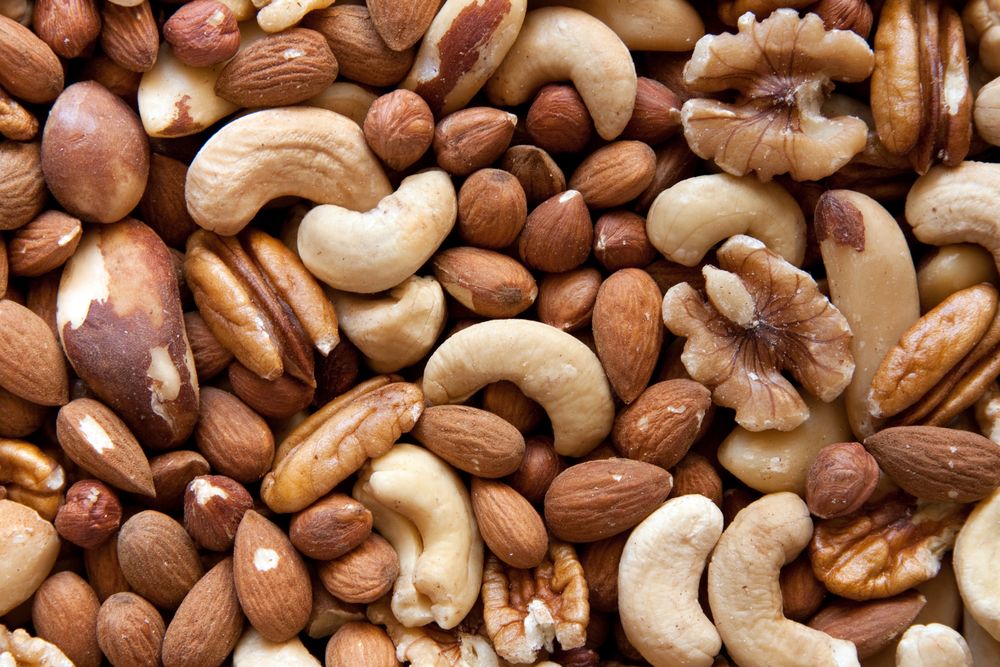
"Peanuts contain oxalates, compounds that can bind with calcium to form calcium oxalate crystals," explains Masi. "For individuals prone to gout or other conditions, consuming too many oxalates can contribute to the formation of kidney stones, leading to pain and discomfort. Those with a history of kidney stones should be mindful of their oxalate intake."
They can be high in sodium.

Salted peanuts can contain surprisingly high levels of sodium, particularly if you're not paying attention to portion sizes. "Dry-roasted, salted peanuts can contain around 410 milligrams of sodium per 100 grams," notes Moody. For individuals monitoring their sodium intake, especially those with heart conditions, opting for unsalted or lightly salted peanuts is a better choice to help stay within the recommended daily sodium limit of 2,300 milligrams.
Are Peanuts Good For You?
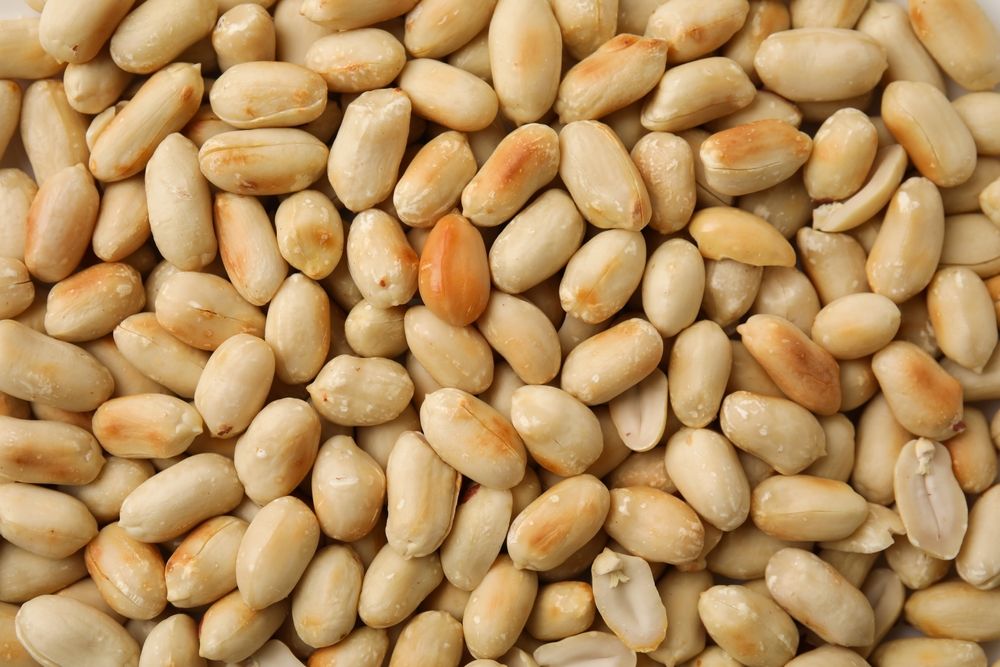
Peanuts can be a nutritious addition to your diet, offering several benefits. They are rich in plant-based protein, heart-healthy fats, magnesium, and fiber, which support muscle repair, heart health, digestion, weight management, and blood sugar control. Peanuts also contain antioxidants that help fight inflammation.
However, they are calorie-dense and can be high in sodium when salted. Additionally, their oxalate content may pose a risk for those prone to kidney stones.
To enjoy the health benefits while minimizing potential drawbacks, choose unsalted varieties and watch your portion sizes.

